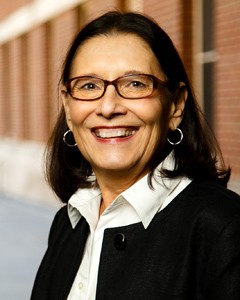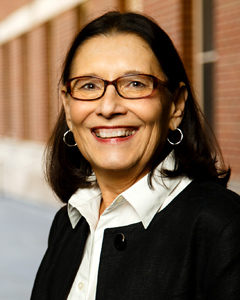
Across the U.S., 14.7 million people provide unpaid caregiving to family and friends experiencing serious, terminal illnesses. These caregivers provide essential support as unofficial care team members and are often as involved in a patient’s course of treatment as the health care providers. Yet, little is understood about what it’s like to be a caregiver and how they learn to fulfill caregiving roles.
“So many people who serve as caregivers report feeling unprepared to deal with what’s ahead along the trajectory of their loved one’s progressive serious illness,” says School of Public Health Assistant Professor Katie White. “The healthcare system isn’t readily poised to answer their questions and help people prepare for their caregiving role and anticipate what lies ahead because it’s so focused on the patient.”
For the first time, White and fellow researcher Dr. Eric Anderson, a palliative care specialist with Allina Health System, have examined how caregivers experience their roles and found many consider the responsibility to be a life-changing journey comprised of challenges, lessons, and rewards.
The study was published in the American Journal of Hospice & Palliative Medicine.
Through multiple focus groups, the researchers found that caregiver’s comments about their experience revolved around three themes: rewards, challenges and learnings.
In the first theme, “Rewards of Caregiving,” caregivers expressed a sense of accomplishment and voiced gratitude for the opportunity to be present and care for a dying loved one. For many, caregiving also reestablished or spawned new relationships with family members.
The “Challenges of Caregiving,” encompassed aspects such as the stress of weathering emotional ups and downs, feeling unsupported in caregiving roles, and witnessing the decline or suffering of a loved one.
“Learnings and Adaptations” revealed the insights and lessons from the experience including becoming familiar with the dying process, recognizing regrets, and thinking proactively.
White says the study reveals the necessity for the medical community to begin regarding unpaid caregivers as essential members of a patient’s care team and to more actively support them in their roles.
“Members of the healthcare system need to acknowledge and respect the important role that the caregiver plays,” says White. “At some point, early on in every case, somebody needs to sit down with the caregiver to make them feel a part of the team, orient them to the processes of care, and ask what questions they have. Caregivers need assurances that they’re going to be listened to and that their caregiving role can add value for themselves, their loved one, and the healthcare team.”
White is continuing her research of caregiving by examining how families engage in caregiving and how they navigate these transformative experiences.

